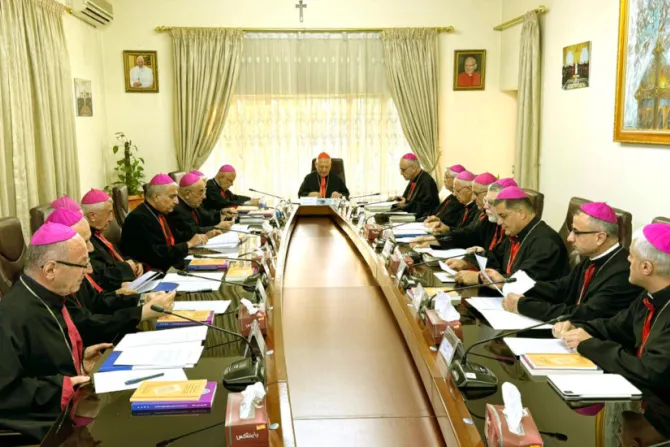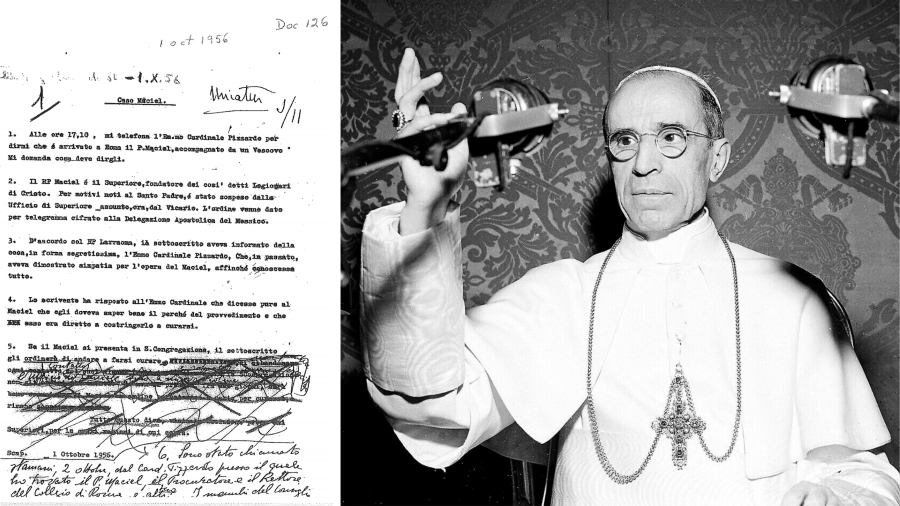Parents say their children have learned to defend their faith well as a result.
By Sabrina Arena Ferrisi, National Catholic Register, 2/20/18
Devout Catholic couples who place their children in public schools do so for a variety of reasons, including logistics, finances and the availability of good public schools. Some feel disillusioned by local Catholic schools. Others simply do not feel called to home school.
Those whose children attend public school have been able to retain the faith well — when their families’ No. 1 priority has been to pass on the Catholic faith.
“I really wanted to put all of our kids in Catholic school,” said Jane Marshall, a mother of seven from Westchester County, New York. “Our goal was to keep them in Catholic school through the eighth grade.”
But Jane and her husband were disappointed with their local Catholic grammar school, finding many lukewarm families and a principal who was living with a divorced mom. Most eighth-graders graders they knew stopped going to Mass after confirmation.
The Marshalls realized that passing on the Catholic faith was more deeply linked to how it was practiced in the family then going to Catholic school.
With this in mind, the Marshalls have thrown themselves into catechizing their children during their time in public school. All seven are practicing the faith. Several are now young adults who are, as Jane says, “on fire for the faith.”
Best Practices
Laurie Baschwitz and her husband from Croton-on-Hudson, New York, had their two sons go to public school through high school. One is now attending Boston College, and the other, a high-school senior, just got accepted to Holy Cross.
“I remember our pastor once gave a homily about how the family had to become a domestic church, the center of the faith. That always stayed with me,” said Baschwitz. “We have tried to do this through daily traditions: grace before meals, Advent and Lenten traditions, prayer before bedtime.”
Sending children to public school means that Catholic parents have to compensate for the religious education they aren’t receiving each day in school.
“Of course, how to compensate depends on how parents present faith to their kids. We started with them at a young age, always talking about our faith and Catholic traditions at home. They were empowered about their faith,” Baschwitz said. “For us, we knew that we had to take that extra step and be committed to pass on the faith intentionally.”
And an addition to their family-based faith focus was their parish CCD program.
“Parents are very involved. I ended up teaching CCD for five years. This is a great way for parents of kids in public schools to keep your children in the faith. It shows your commitment, and it keeps you in touch with the program. It also allowed us to form relationships with other families and their kids,” Baschwitz said.
Baschwitz ended up preparing her younger son directly for his first Communion and continued to teach him for several years.
Another important thing, according to Baschwitz, was keeping her sons engaged in service. Since their public school required 25 hours of community service, she made sure their service hours had a Catholic component.
“They took part in retreats led by the Capuchin Youth and Family Ministries in Garrison, New York, while in middle school. In high school, they participated in a Capuchin summer program called ‘Companions in Service.’ One summer, my older son volunteered at a nursing home. My younger son volunteered at another nursing home and another year was a counselor at a summer Bible camp for preschoolers. Every day they were able to participate in Mass and a prayerful reflection. They were asked to reflect about how they could be Christ’s hands and feet in a world that needed their service,” she said.
Baschwitz’s younger son also took part in a Jesuit summer program called “Ever to Excel” at Boston College, where high-school teens are trained to be leaders in the Catholic faith.
Both Baschwitz’s sons participated in a solid Catholic youth group in their parish throughout high school that combined monthly community-service projects with spiritual development, as well.
Baschwitz believes that her sons’ public-school experience has made them strong witnesses to their Catholic faith.
“Being a little bit separate in public school strengthened their Catholic identity,” she explained. “And the blessings sometimes came in unique ways. Both of our boys were active in their high school’s Academic Challenge team. This group would compete against other schools in competitions, a lot like Jeopardy. When a religion question came up, their teammates would turn to them to respond because they knew many of the answers right away!”
Family Faith Formation
Maria Rudloff and her husband come from Mexico and Chile, respectively, and their four children have gone through public schools in Scarsdale, New York. When they decided to enroll their children in public school, one of their main concerns was how to implement faith formation in daily life.
“We decided to reinforce [the faith with] our children at home by taking some time from our schedules and having good, quality moments of communication with each child, as well as making sure that they participate in apostolic activities during the summer,” said Rudloff.
The Rudloffs have also put their children in CCD programs.
“But there is a lot of space that still needs to be covered by parents. We needed to reinforce subjects over and over again, teaching our children our values and our thoughts,” she said.
When Rudloff’s children were little, she read the children’s Bible to them. Such devotions have had a lasting impact.
“The other day, my son Nicholas — a senior in high school — said, ‘Mom, if it weren’t for that children’s Bible, I wouldn’t know all the stories,’” she said.
Rudloff keeps in mind that her children will remember not just what they say, but how she and her husband act, as well.
“For example, if you want your kids to go to confession, you have to encourage them and show them that you are going, too,” she said.
The Rudloffs have sent their kids to Catholic summer camps, like Opus Dei-sponsored ones and Camp Veritas, which organizes one-week camps for school-aged teens at locations in the Eastern U.S. as well as Ireland. They also sent their daughter Maria to Chile for one semester in a Catholic high school, where she did volunteer work for the poor with a Schoenstatt youth group (Schoenstatt is a Catholic Marian movement) and went to World Youth Day in Brazil. Nicholas went to World Youth Day in Krakow, Poland, and was able to partake in “The Camino,” a pilgrimage walk to Santiago de Compostela in Spain. Nicholas has also done mission work in Chile through the Universidad Católica youth group Siembra.
But the most important work, for Rudloff, is focused in everyday conversations.
“It is full-time job. But you have to keep the channels of communication open. Even when they go to college, it doesn’t stop. They still need your point of view, the right word at the right time. They really seek that,” she said.
Public-School Issues
While faith formation can be spearheaded at home, how should families approach controversial issues that may come up in public school, such as in health class?
Marshall pulled her children out of sex education beginning in the fifth grade because of its lack of moral balance. She also pulled most of her children out of sex education in high school. By the time her fifth child was in high school, however, that particular child wanted to stay in the class in order to give witness to her Catholic values.
“She had been in Camp Veritas for four summers, which covers the Church’s teaching on sexuality very well. She wanted to stand up for her faith, so we let her do it,” said Marshall.
Baschwitz took a different approach. She decided to meet with the health teacher and ask about the topics to be covered. Because of this, she developed a relationship with the health teacher and had time to prepare her sons and go over the Church’s teaching with them.
Another issue that can come up is when a teacher, usually in history class, presents Catholicism as a negative. The Marshalls encountered this situation and met with the teacher and the head of the school’s history department. They gave the two educators a list of all the accomplishments of the Catholic Church throughout history (with the help of Catholics Answers) and told them that their daughter was being made to feel ashamed to be Catholic because of the class. The teacher immediately apologized and ended up copying the Marshalls’ document and giving it to every student in the class.
Other Ideas
Marshall took her younger children to daily Mass until they entered middle school. Their family also hired a private catechist who graduated from Franciscan University of Steubenville and taught the children catechesis to supplement the family formation. The Marshalls attend the March for Life every year and send their kids to Camp Veritas every summer.
“I love my faith. My husband and I both practiced early in our marriage but did not fully understand the faith until we were challenged by friends who had left the Church,” said Marshall. “Learning and accepting the truths of our faith changed our marriage and guided us in raising our kids.”
The Marshalls pray the Rosary as a family frequently. They also keep the doors open to discuss any issue that may come up.
“Nothing is off limits,” said Marshall. “We are fortunate to have a large and generally supportive extended Catholic family, especially a knowledgeable and faithful grandmother and great aunt, and cousins who have helped teach and support our kids in faith.”
She added, “I don’t regret sending my kids to public school. I think my kids can now go anywhere and fight [for the truth] because they have been fortified. When you go to public school, you have to deal with the world and stand up for yourself and learn how to not back down.”
Register correspondent Sabrina Arena Ferrisi writes from New York.
Editor’s Note: “Jane Marshall” reflects a name change for anonymity.







